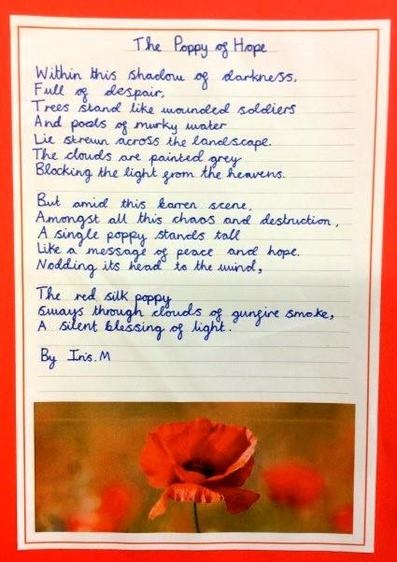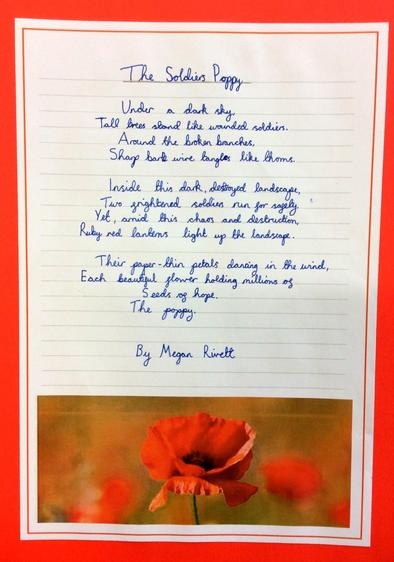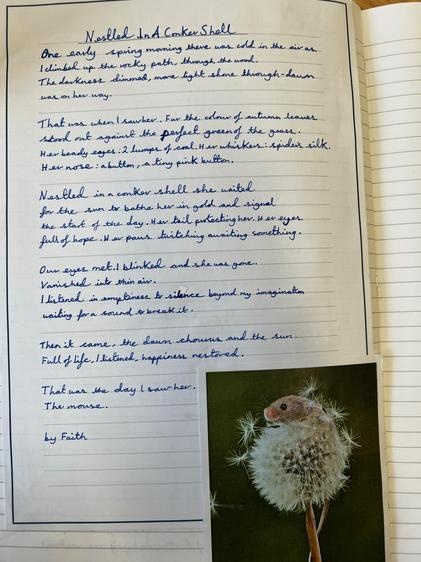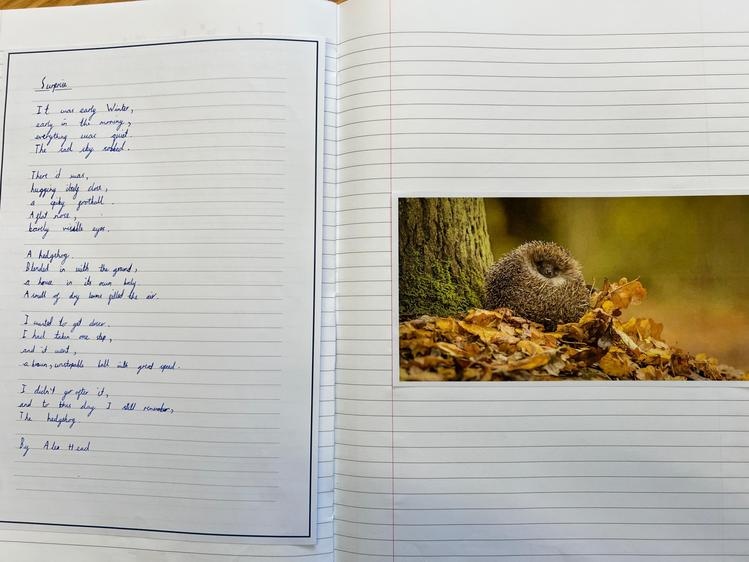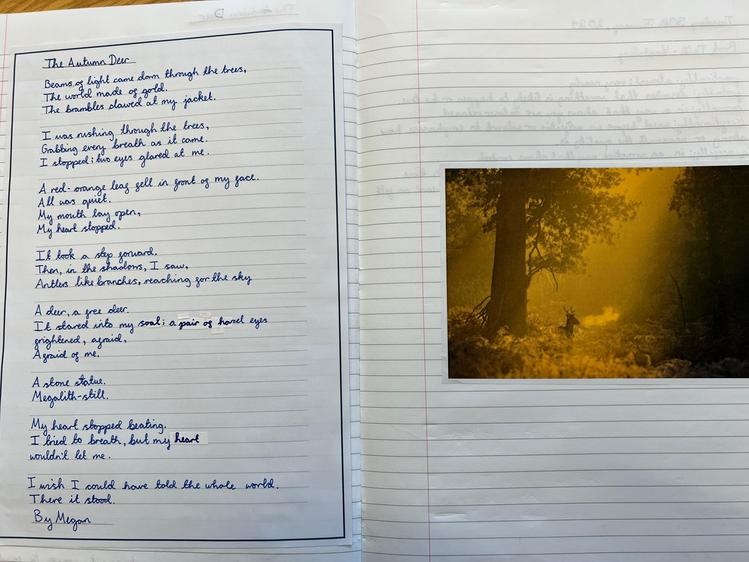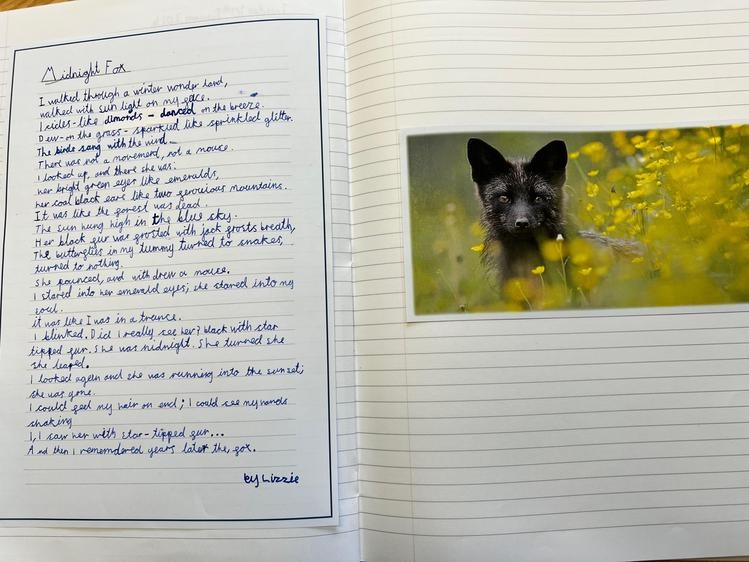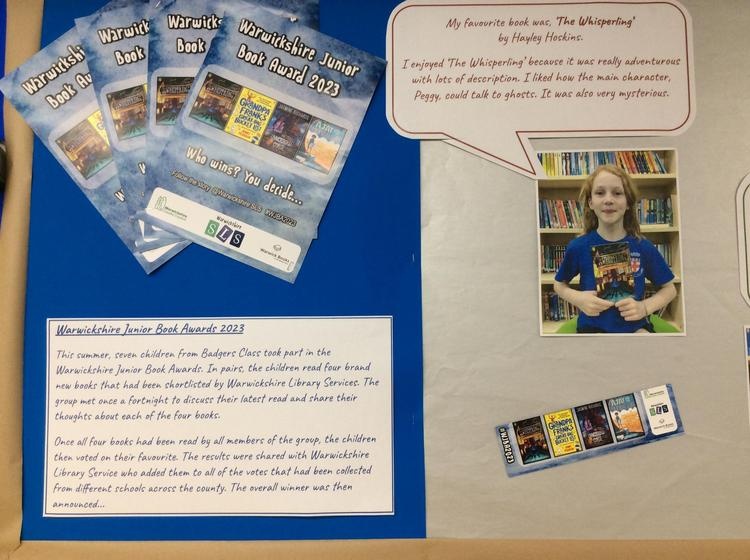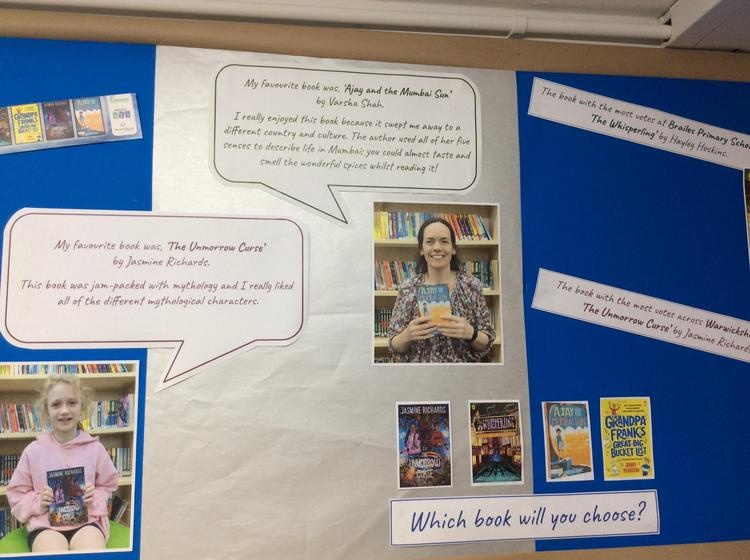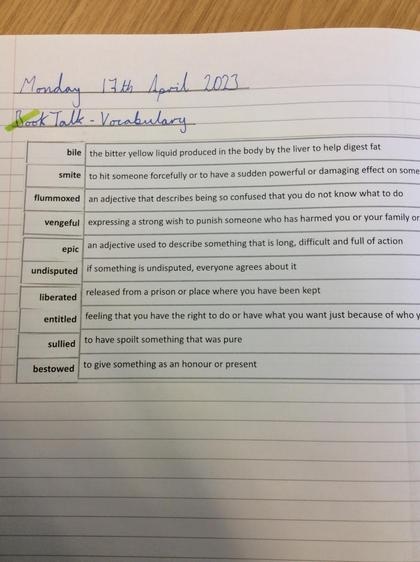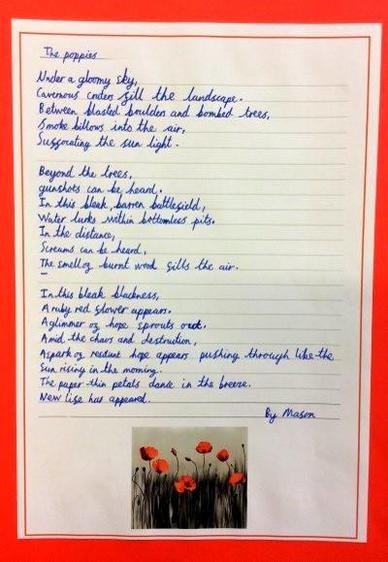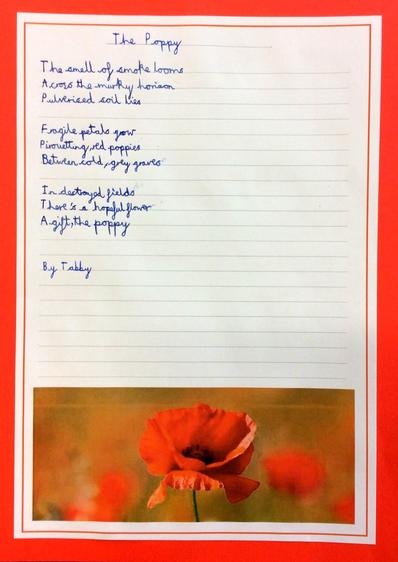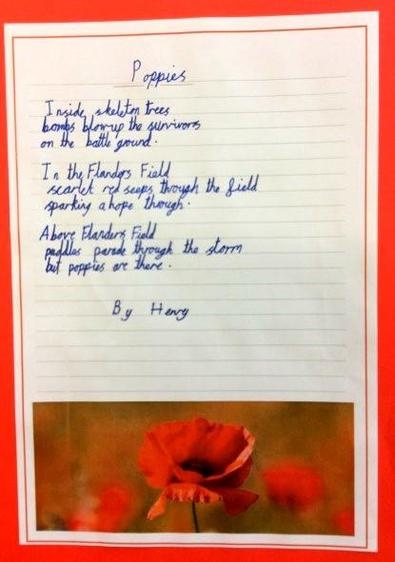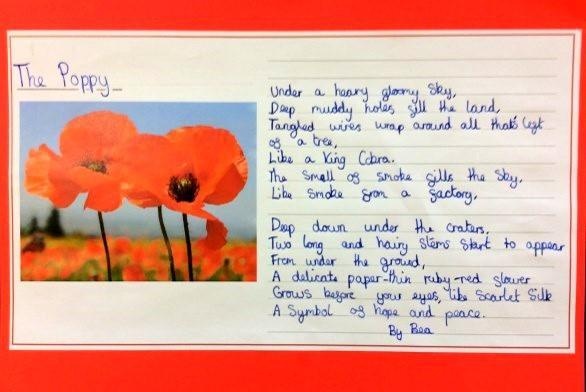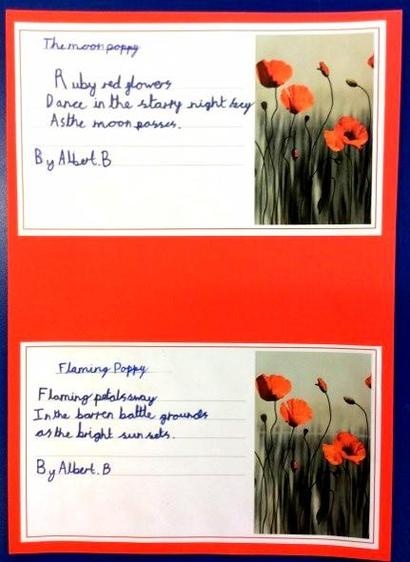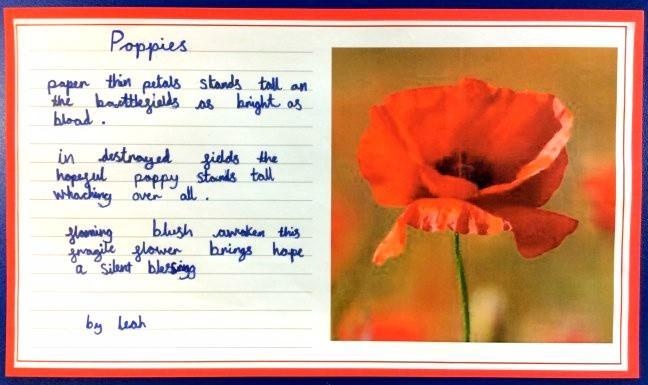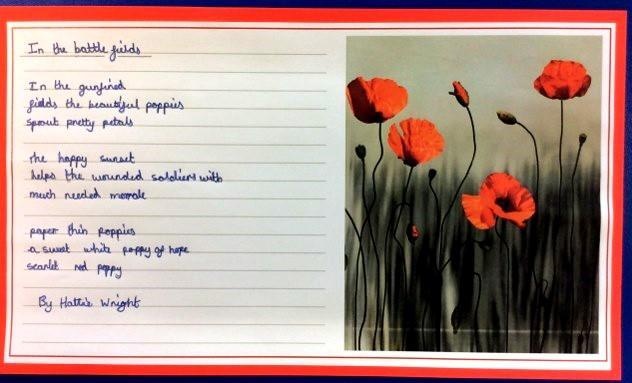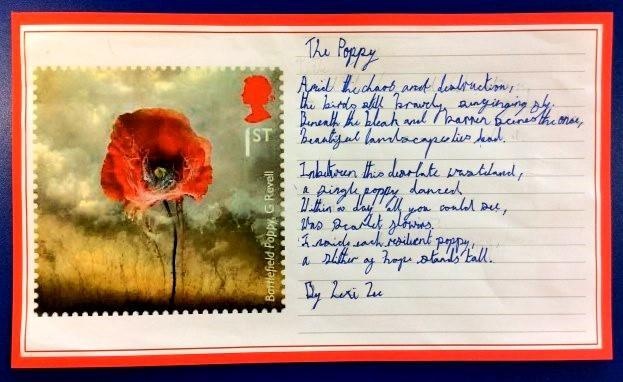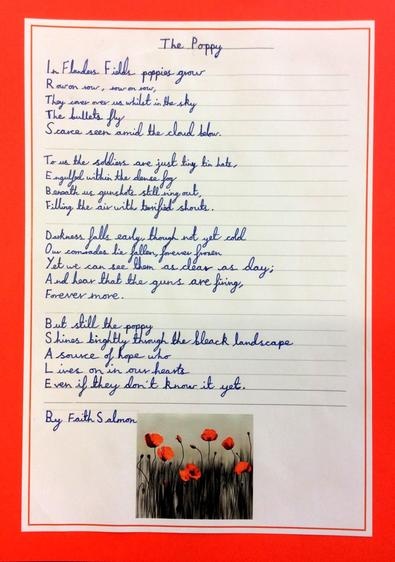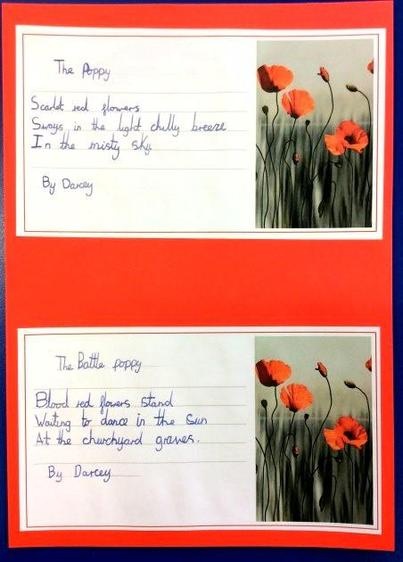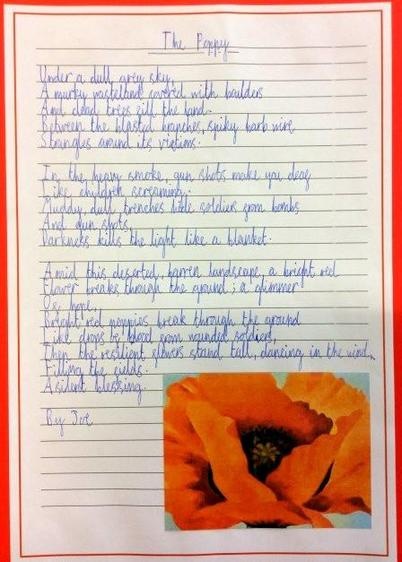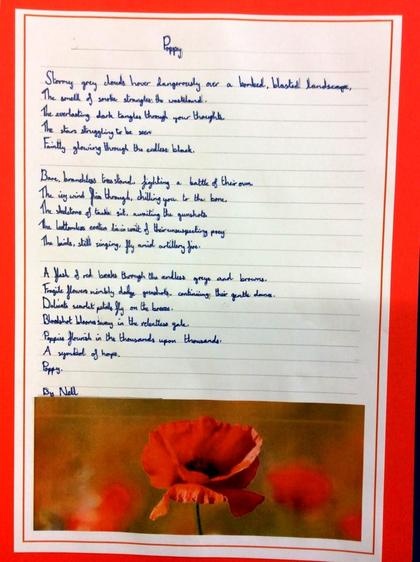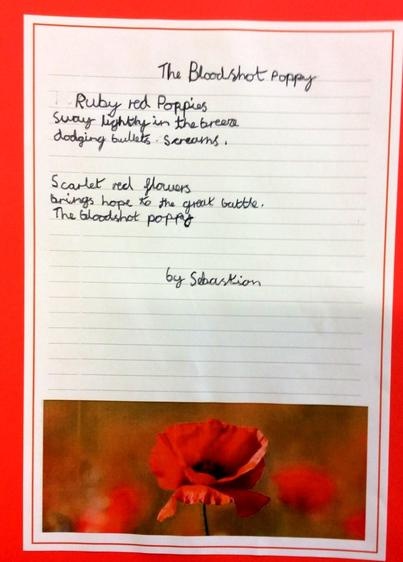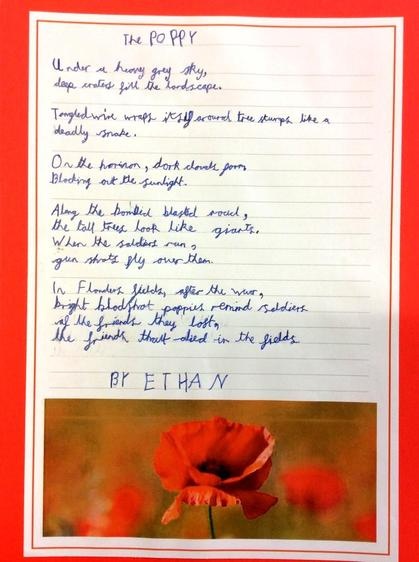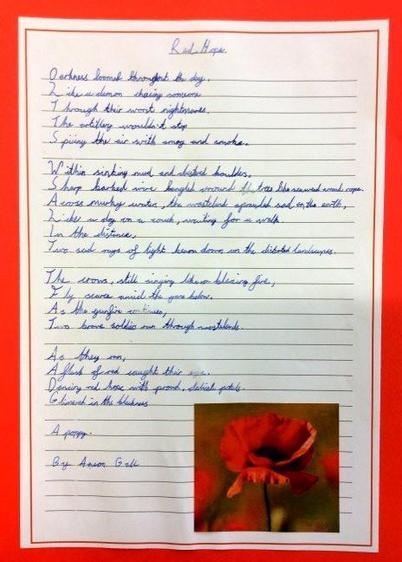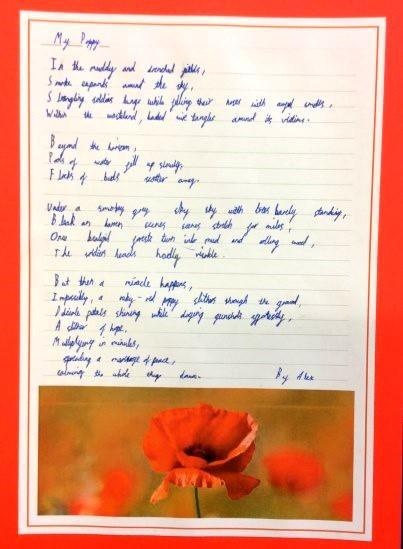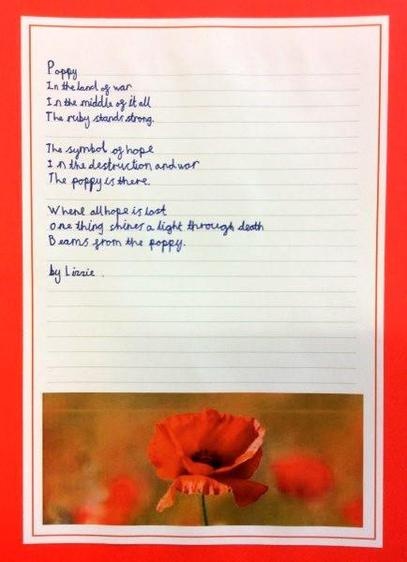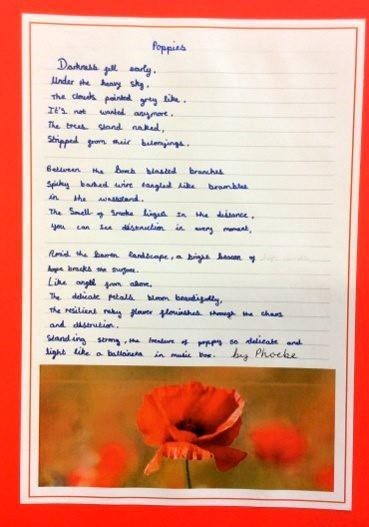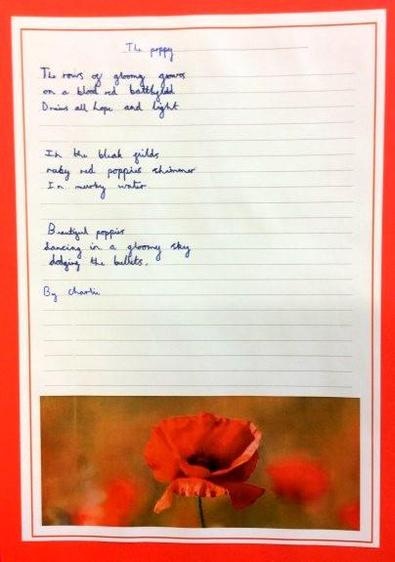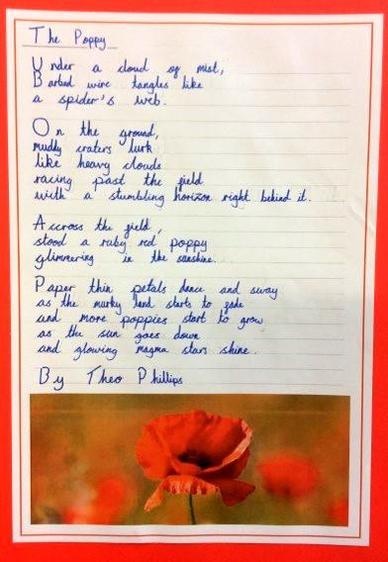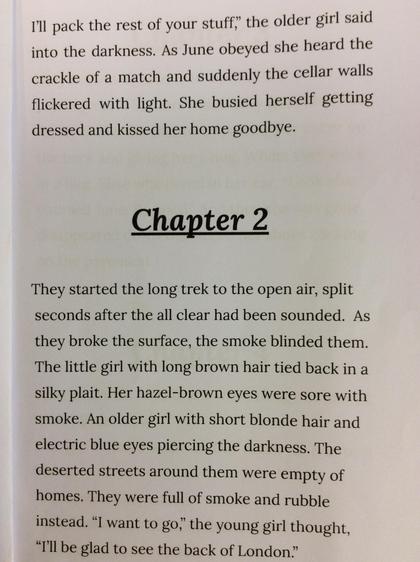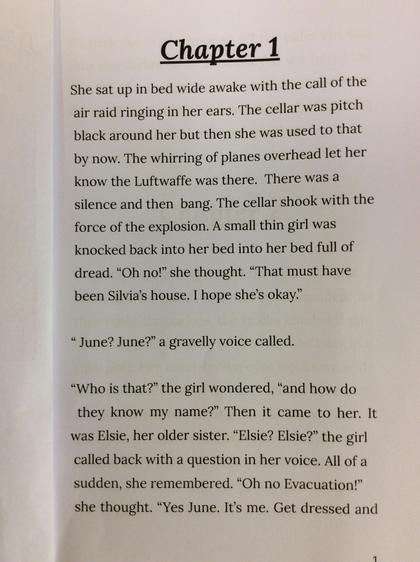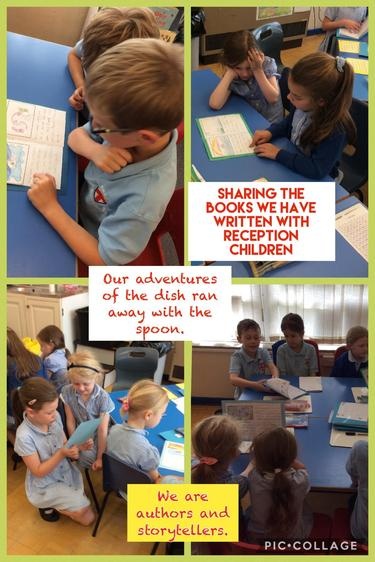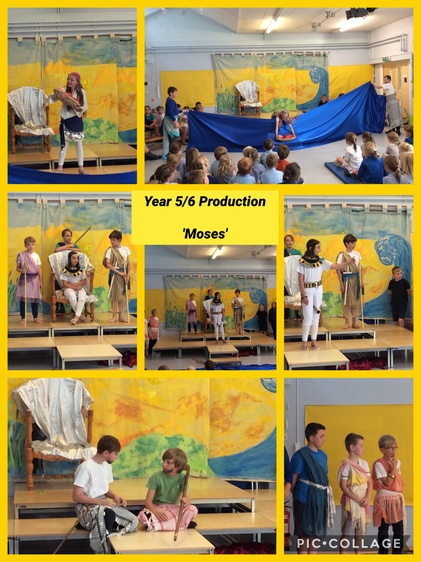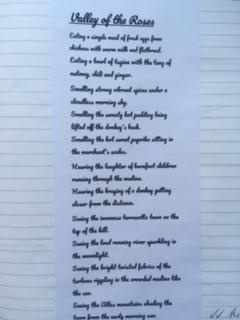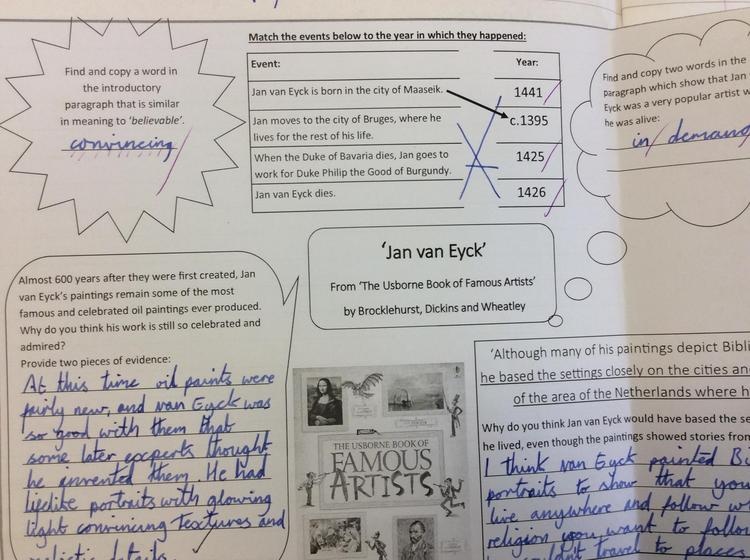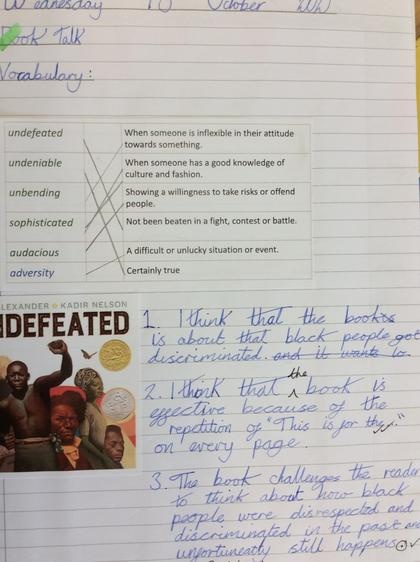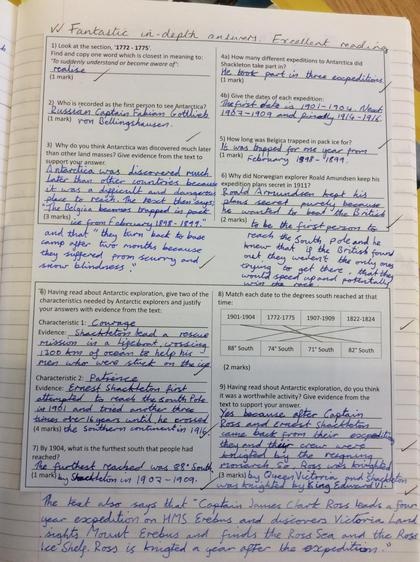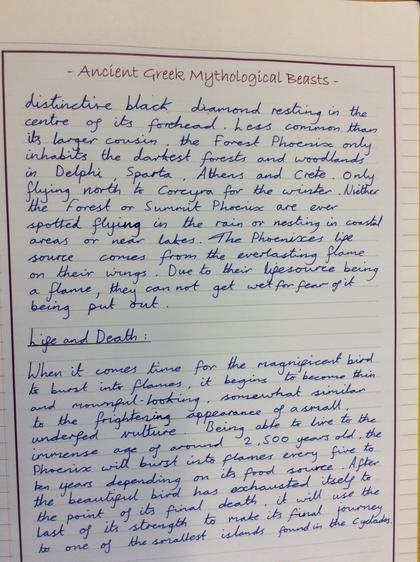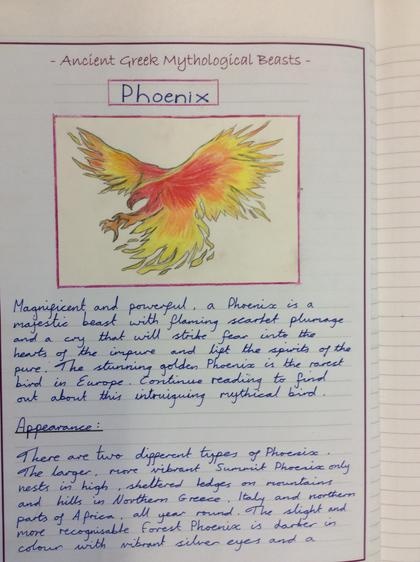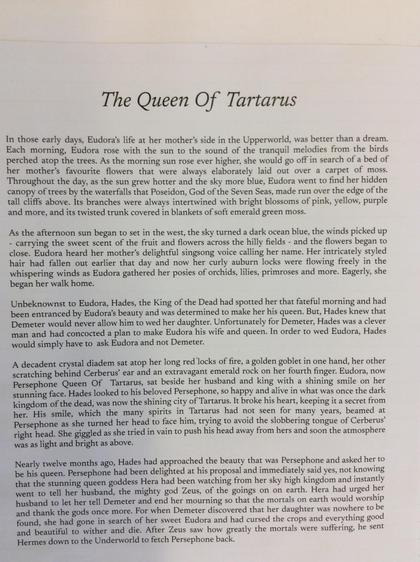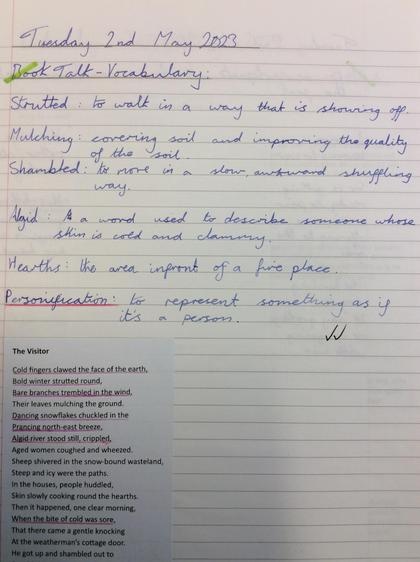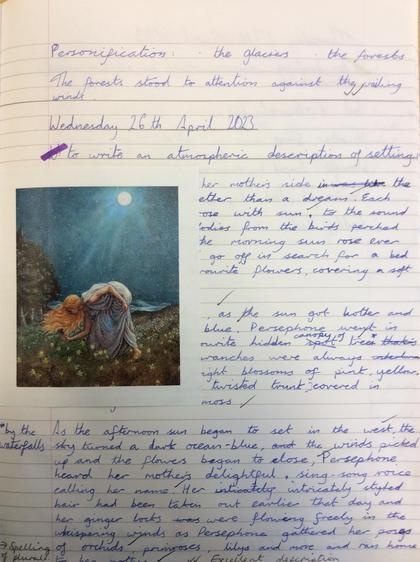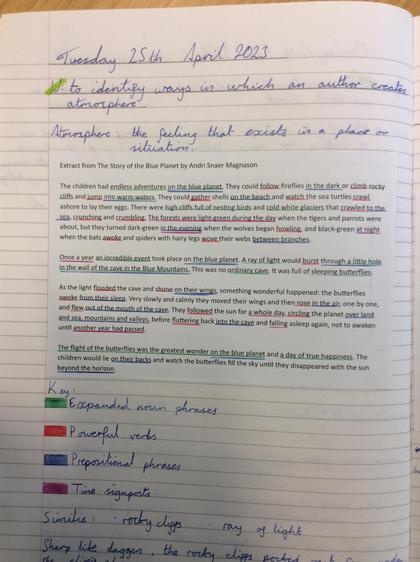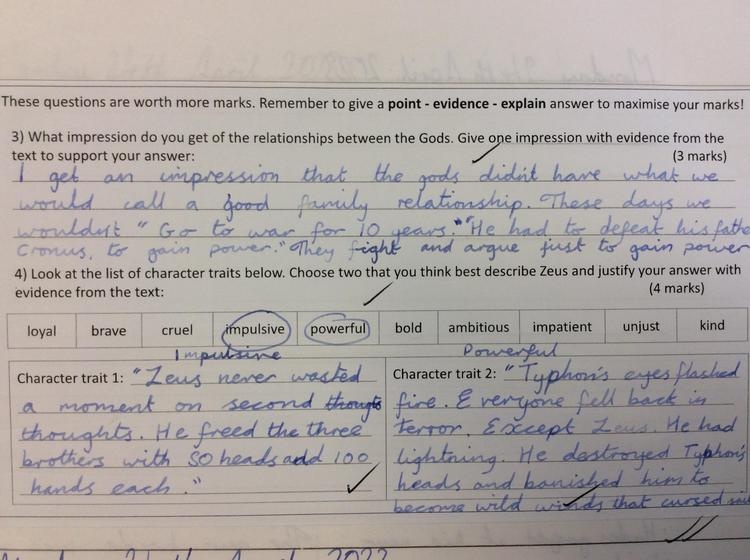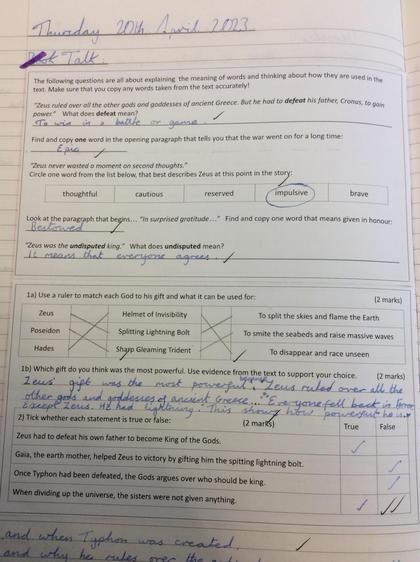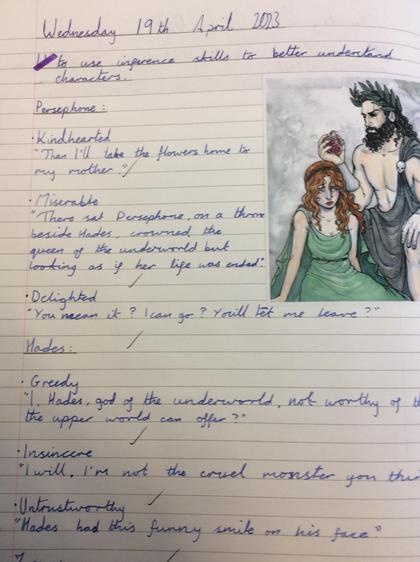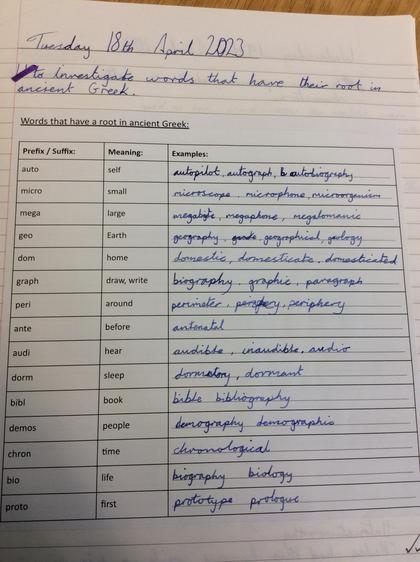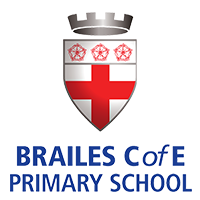
Brailes CofE Primary School
English
- The Stour Federation Reading Progression
- The Stour Federation Tier 2 Vocabulary Progression Map
- The Stour Federation Suggested Writing Units Mixed Year
- The Stour Federation Writing Progression
- 7 Top Tips to Support Reading at Home
- Primary Age-Appropriate Books
- Comprehension Cards for Parents
- Read with TRUST
Reading Intent
Reading is at the heart of our curriculum, a crucial part of our daily experience and is essential for developing educational and social progress. It is our vision to ensure every child achieves their full potential to become confident, enthusiastic readers and diverse, understanding members of society. As inspiring role models of literature, it is our intention to nurture a love of reading, to immerse children in high quality texts, and to develop a thirst for discovery. We strive to cultivate a community with strong abilities in both the spoken and written word, therefore the acquisition of language and vocabulary is of the utmost importance and underpins our regular meaningful discussions and explicit teaching of reading skills.
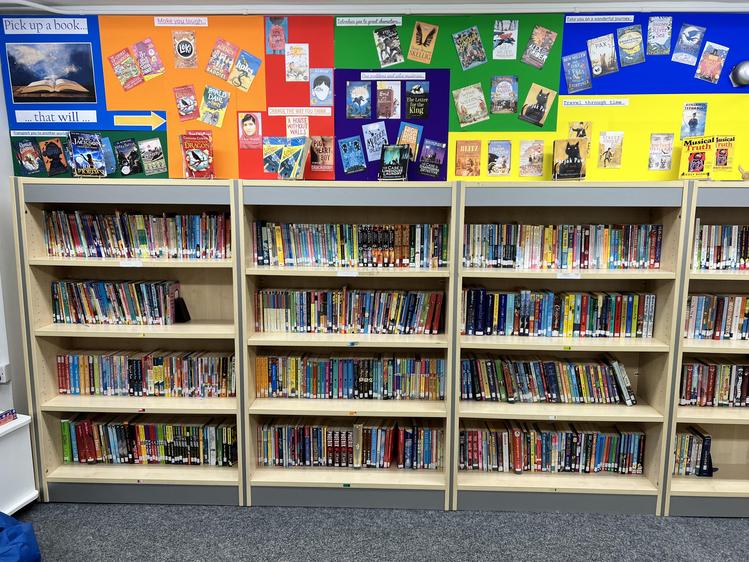
How do we teach your children to read and write?
Every child deserves success right from the start. We know that the sooner children learn to read, the greater their success at school. This is why we put reading at the heart of what we do.
We use a teaching programme called Read Write Inc. Phonics to teach our children to read and write. We make sure every child can read the last set of phonic stories before they progress to our higher level programmes - Literacy and Language, and Spelling. Some children complete the programme in Year 1 and others in Year 2. Year 3 and 4 children who need extra support follow this programme too.
During this time, we group children by their reading progress for one hour a day (20 to 45 minutes in Reception) and re-assess children every half-term so we can place them in the group where they’ll make the most progress. We provide extra daily one-to-one sessions for children who need a bit of a boost to keep up.
How do we get children to remember what we teach them?
It’s much easier teaching one child – we can get them to repeat what they have understood in their own words, step by step. Then, if they haven’t understood, we can try different words and explanations. So, in order to replicate this back and forth dialogue with a group or class, we use partner work. Children answer every question with a partner, the teacher checks what they know and only moves on when they understand. It means that all children stay focused throughout the lesson. Partner talk is fundamental to the success of our school. We use, ‘Turn to your partner’ in every lesson throughout the day.
Book Talk
Each child receives quality reading lessons each week to develop specific reading skills, including fluency and confidence when reading aloud. This is delivered through our Book Talk Jane Considine's Reading Rainbow.
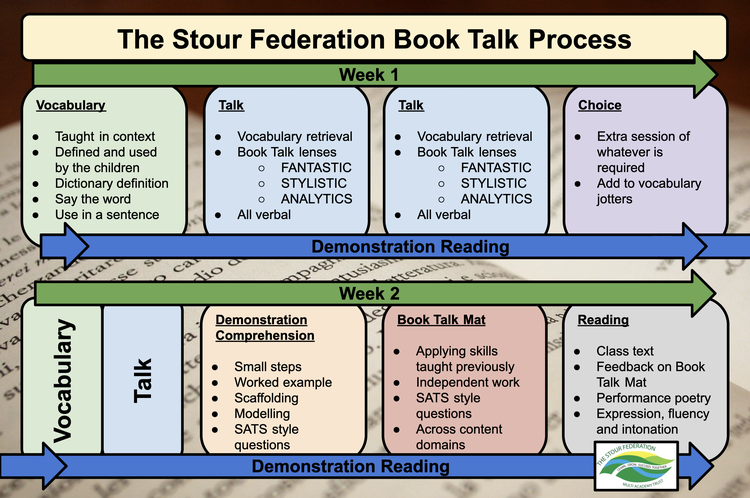
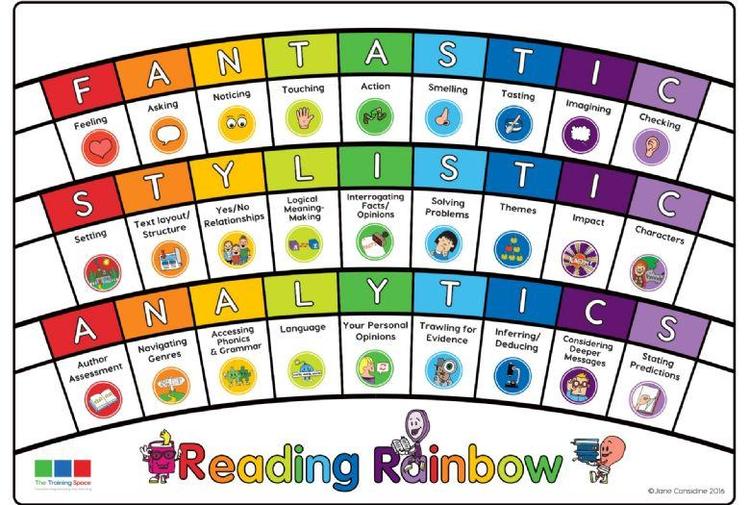
How do we teach children to spell confidently?
We use just two simple activities: Fred Fingers to spell regular words and Red Rhythms for tricky words.
FRED FINGERS
We teach children to spell using ‘Fred Fingers’: we say a word and then children pinch the sounds onto their fingers and write the word, sound by sound.
RED RHYTHMS
We teach tricky words with Red Rhythms. We say the tricky letters in a puzzled or annoyed voice and build the letter names up into a rhythm, for example, s-ai-d.
Children learn to spell new words and review past words every week, they practise spelling them with a partner and – when they’re ready – we give them a test to celebrate their spelling success.
How do we make writing simple for children to learn?
We teach handwriting, spelling and composition separately, gradually bringing each skill together step-by-step.
We teach children to form letters with the correct pencil grip and in the correct sitting position from the very beginning. They practise handwriting every day so they learn to write quickly and easily.
Once children can write simple words, we teach them to ‘hold’ a sentence in their heads and then write it with correct spelling and punctuation.
Very soon children are able to write down their own ideas. We try out different sentences together, drawing on new vocabulary and phrases from the storybook they’ve just read. They practise saying their sentences out loud first so they don’t forget their ideas while they’re writing. They also learn to proofread their own writing using ready-made sentences containing common grammar, punctuation and spelling errors.
Every night:
1. Read a bedtime story to your child.
Your child will bring home lovely library books from school. Read bedtime stories to your child – don’t ask them to read the story themselves as this is beyond their current reading stage. There is some really good advice about how to make bedtime storytime fun on www.ruthmiskin.com/parents
2. Listen to your child read the storybook we send home.
Your child will bring home a book they have just finished reading in their group. They will be able to read this book confidently because they have already read it two or three times. Please do not say “This book is too easy!” Praise your child for how well they read it – celebrate what a great reader they are. They’ll sometimes bring home previous stories they have read too. Re-reading stories develops their fluency on every reading. There’s more good advice on how to listen to your child read on www.ruthmiskin.com/parents
Spelling
Intent:
At Brailes Primary School, our intent for writing is, “to enable all children to find their voice and equip them with the knowledge and skills needed to express themselves clearly and accurately through spoken and written language.” In order for this to be realised, it is essential that our pupils learn how to spell accurately. Children who can spell feel confident and are able to enjoy the writing process. They can be adventurous with their use of language and write with clear purpose and for pleasure. Most importantly, they can be understood.
We want our pupils to be equipped with the knowledge and range of strategies needed for accurate spelling and to be able to apply that knowledge when spelling words in their independent writing. We take an investigative approach to the teaching of spelling so that children notice patterns for themselves, internalise and understand our spelling system, as well as identify the many contradictions of the English language. We want our children to be curious, excited spellers, developing lifelong strategies for spelling effectively.
Implementation:
These aims are embedded across our curriculum, explicitly within Book Talk, the Writing Process, and weekly spelling lessons, but also through the high priority that spelling and vocabulary is awarded across all areas of the curriculum.
Children from Reception to Y2 develop a sound knowledge of spelling strategies as part of the Read, Write, Inc programme which is delivered daily. Small groups and regular assessment ensure that children progress through the programme at a rate appropriate to their level of understanding. Children who are identified as requiring further support in phonetic understanding in KS2, also benefit from participation in the programme. All staff in school have been trained in the Read, Write, Inc programme (January 2024) providing consistency in its delivery across the school.
In Year 2 and beyond, a robust, investigative spelling curriculum (Essential Spelling) is delivered, building on the children’s phonetic understanding. At the start of the week, an investigation lesson provides children with the opportunity to notice spelling patterns for themselves, play with words and make connections between their existing knowledge and new knowledge. This is then followed by at least two review lessons in which students practise the new patterns. Regular retrieval sessions are also built into our long-term spelling plan which enables children to commit learning to their long-term memory.
Children who would benefit from additional support receive targeted spelling programmes as part of our SEND provision. This follows the termly cycle of ‘Assess, Plan, Do, Review’ and will be clearly communicated with parents/guardians.
Impact:
As pupils move through our key stages, they develop, consolidate and secure the skills needed to spell accurately. They acquire these skills by exposure to high-quality texts through both our Book Talk and Writing Processes, and our explicit teaching of spelling.
Our established processes and ambitious curriculum encourage pupils to think creatively, to be adventurous with their use of language and to write with clear purpose.
Through our effective delivery of Read, Write, Inc. phonics, our robust, investigative spelling programme, established Writing and Book Talk Processes, and ambitious curriculum offer our pupils will:
- Use their phonic skills effectively when blending phonemes for reading and when segmenting phonemes for spelling
- Have an interest in words, their meanings and their origins, developing a growing vocabulary both for speaking and writing
- Write with confidence and creativity, while developing the skills to self-edit, correct and improve
- Find their voice by being imaginative, creative and challenging themselves
Teaching and Learning:
Rosenshine’s Principles of Review, Teach, Practice and Apply are used within our teaching of spelling in
the delivery of both the Read, Write, Inc programme and Key Stage Two Essential Spelling:
- Review: each lesson begins with a short review of previous learning., e.g. revision of previously taught sounds/words/affixes or revision of previous teaching linked to the sound/spelling pattern that is about to be delivered. Regular ‘Review’ lessons are built into the scheme to address common errors and misconceptions. This was identified as a priority in the Spelling Audit which took place during the Autumn Term: 2023.
- Teach: teaching in the Read, Write, Inc programme is fast-paced and delivered to small groups to accelerate progress. In Years 2-6, the main teaching is done through an investigative approach where children have time to explore the spelling pattern, notice and make links. Explicit links are made to previous learning as children are challenged to think, “What do we already know that might help us to spell words in this sequence?”
- Practice: daily practice is provided in the Read, Write, Inc programme and in Year 2 spelling. In Years 3-6, the longer investigative lesson is followed up with two shorter sessions which provide opportunities for deliberate practice. This can include a handwriting lesson.
- Apply: children are given opportunities across the curriculum to apply their understanding. Teachers actively model making explicit links from spelling learning to other areas of the curriculum and children are rewarded for doing likewise. Children also have the opportunity to apply their learning each week through the seven spelling sentences that are set for homework.
Read, Write, Inc.
Read, Write, Inc is delivered daily to small groups of children in Reception and Year 1. Children are grouped via regular assessment which take place at least every six weeks. Children who are identified as requiring further support in phonetic understanding in KS2, also benefit from participation in the programme. Teaching is delivered by Class Teachers and Teaching Assistants who receive regular coaching.
Year 2:
Year 2 spelling takes place daily (20 minutes every day). Any children identified as needing further phonics work, receive this in addition to the spelling work.
Years 3 - 6:
Spelling is taught at least three times a week. This includes a longer investigative lesson (40 minutes) inwhich children have the opportunity to notice, internalise and understand the spelling system and build words for themselves. This is then followed by two shorter review sessions (15 / 20 minutes).
In addition to the Essential Spelling Scheme of Work, the first week of each term (Autumn, Spring and Summer) will be set aside for the teaching of subject-specific vocabulary related to the new topic. The teacher identifies keywords that are likely to be misspelt and uses a week of spelling learning to address misconceptions. These will then be reviewed throughout the topic.
Spelling Teaching Sequence:
Academic Year: Owls: Badgers:
2023 / 2024 Essential Spelling Year 3 in Owls Class and Essential Spelling Year 5 in Badgers Class
2024 / 2025 Essential Spelling Year 4 in Owls Class and Essential Spelling Year 6 in Badgers Class.
All Year Group planning in the Essential Spelling Scheme builds in regular sessions for the review of previous learning, especially in the Autumn Term. All lessons also include two further sections: Minor Gaps and Major Gaps, to support the teacher in differentiating learning as needed.
Planning and Resources:
- Read, Write, Inc resources are stored in between Rabbits and Squirrels classrooms. Regular coaching is provided by the Read, Write, Inc. leader.
- Essential Spelling Scheme of Work and resources are available on the Brailes Shared Drive: Spelling - 2024/2025 - Essential Spelling Schemes of Work
- The National Curriculum English Appendix 1: Spelling can also be used to support the planning of spelling in Years 2 - 6: https://assets.publishing.service.gov.uk/media/5a7ccc06ed915d63cc65ce61/English_Appendix_1 -_Spelling.pdf
- Year 3 / 4 Statutory Word List Grouped by Area: https://www.risingstars uk.com/media/Rising-Stars/Blog/Shareen-grid-Yr-3-and-4.pdf
- Year 5 / 6 Statutory Word List Grouped by Area: https://www.risingstars-uk.com/media/Rising-Stars/Blog/Shareen-grid-Yr-5-and-6.pdf
Homework:
Spelling Homework is set on Thursday and due the following Tuesday.
➔ Children in Years 2 - 6 are set a spelling activity to further investigate, practise or learn the words they have been investigating that week in school. A bank of activities is available in the Spelling folder on the Brailes drive.
➔ Y1/Y2 phonics practice: QR codes linking to videos to revise new sounds to be watched together weekly.
A Spelling Bee will be held every two years to raise the profile of spelling and celebrate success within the school community.
Assessment:
Children in Reception and Year 1 and in Year 2 (until they have completed the RWI programme will be formally assessed every half term by The Read, Write, Inc leader to ensure that they are in the phonics group most appropriate for their level of understanding. Movement between groups can take place more frequently, as needed, especially in Reception.
The majority of spelling assessment will take place through a teacher’s marking of children’s
independent written work. This will inform future planning (especially those sessions set aside each term for review) and identify any children who need further support. Feedback to children will be provided by the school’s marking policy and regular time is given within our Writing Process for children to self-edit, correct and improve.
At the end of every half term, a test of twenty words (chosen from that half term’s teaching) will take place. This will enable the teacher to assess the learning from that half term, and identify any areas that need further review. This can be built into next term’s review sessions.
Three times a year, (Autumn, Spring, Summer) children complete a GPS test as part of our Summative Assessment. Years 1, 3, 4 and 5 complete the Cornerstones assessments. Children in Years 2 and 6 complete past SATs papers. The scores are reported to the Senior Leadership Team. and on Curriculum Maestro.
All teachers attend both in-trust and consortium-led writing moderation in which they must present children’s work to colleagues. Spelling is a key focus in this process.
Pupil Book Studies take place regularly and spelling accuracy remains a focus in all areas of the curriculum.
Spelling Documentation
- SPELLING POLICY 2024.pdf
- Year 1 and Year 2 Spelling List
- Year 3 and Year 4 Spelling List
- Year 5 and Year 6 Spelling List
Writing Intent
To enable all children to find their voice by equipping them with the knowledge and skills needed to express themselves clearly and accurately through spoken and written language. We expose our learners to a variety of stimuli and experiences so that they can build confidence and showcase their imaginations and abilities through a range of writing styles. Children always start writing through the exploration of high-quality texts. This is underpinned by explicit vocabulary teaching, grammar, punctuation and sentence level work. From initial mark-making to precise text shaping, our children become authors by writing with both audience and purpose in mind.
The Writing Process
It is expected that children will be given as many opportunities as possible to use and apply their writing skills across all text types and across the whole curriculum. Teachers plan for this accordingly using The Stour Federation's Writing Process.
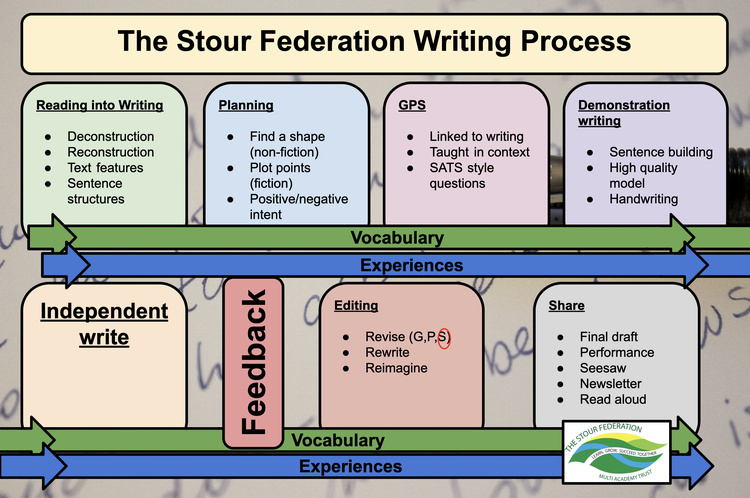
Vocabulary underpins our curriculum and it is at the heart of every subject we teach. Although we recognise that reading is invaluable for learning new language, we cannot assume that the more words you read, the more words you know. In The Stour Federation, we teach vocabulary explicitly and then revisit and revise words learned. This way, the children know the words in depth - meaning that they can use them in a variety of contexts, in writing, speaking and reading.
Every year, we subscribe to No More Marking, an online Comparative Judgement system, which allows our staff to collaborate with thousands of other schools in judging writing from years 1-6. By uploading and assessing our children's writing in six national judging windows, we are able to get whole-school and nationally benchmarked data, allowing us to save time, support progression and intervention planning and tailor feedback. With all our teachers and teaching assistants knowing what good quality writing looks like across the school, we have high expectations and a shared understanding of next steps.
